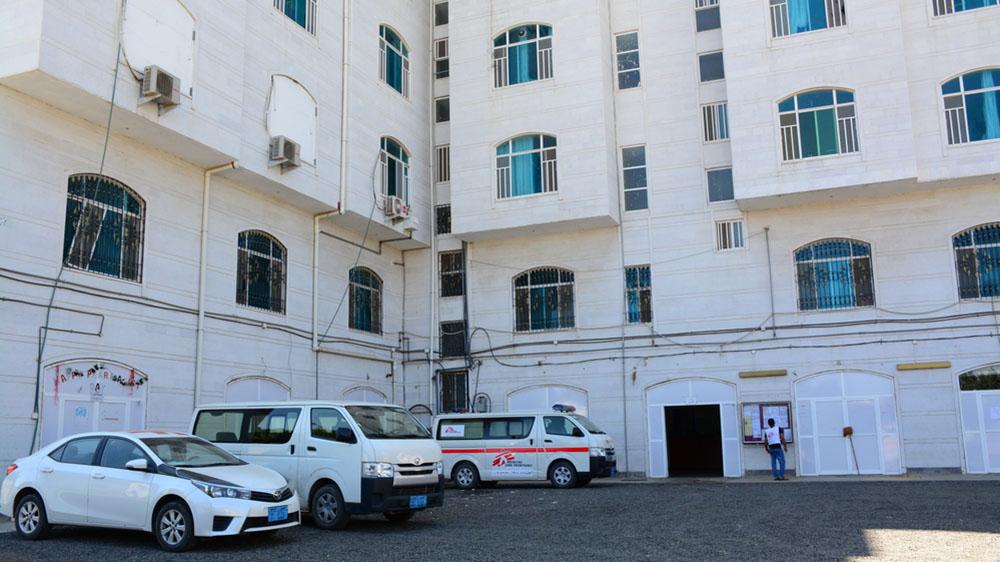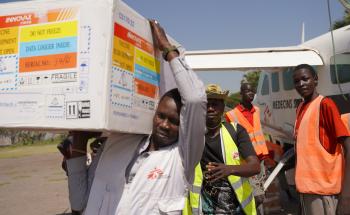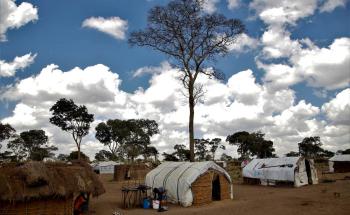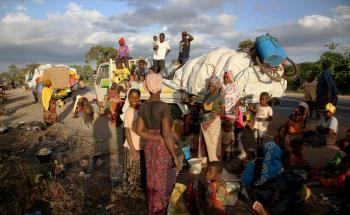By Rachel Coyle, MSF midwife
Like most of our patients, 22-year-old Zainab* had travelled a long way to reach our hospital.
Thirty weeks pregnant, she arrived at our hospital fully dilated, expecting premature twin girls.
A case of fully dilated premature twins is certainly urgent anywhere in the world, and here at Doctors Without Borders (MSF)’s mother and child hospital in Taiz Houban, southern Yemen, we have a well-functioning system to deal with urgent cases.
With no options for pain relief, Zainab was strong and determined in her efforts to deliver her babies. They both came out roaring – perhaps the only time a mother is happy to hear her children cry! The room was full of joy and hugs between Zainab and the team.
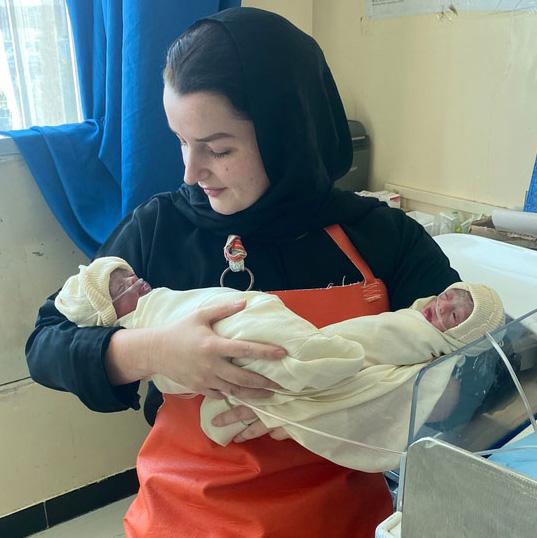
With no options for pain relief, Zainab was strong and determined in her efforts to deliver her babies. They both came out roaring – perhaps the only time a mother is happy to hear her children cry! The room was full of joy and hugs between Zainab and the team.
Although the twins cried spontaneously, they both required some assistance with their breathing. Upstairs from the maternity unit is a neonatal unit, where we monitored their breathing for a couple of days. As I live very close by, I was able to visit them regularly and observe how they improved, giving me much encouragement.
At 32 years old, I left a delivery suite in Dublin for a maternity ward in Yemen. I am currently in the middle of my first stint with MSF, working as a midwife supervisor at Taiz Houban Hospital, which provides free healthcare to women and children, especially those in vulnerable situations.
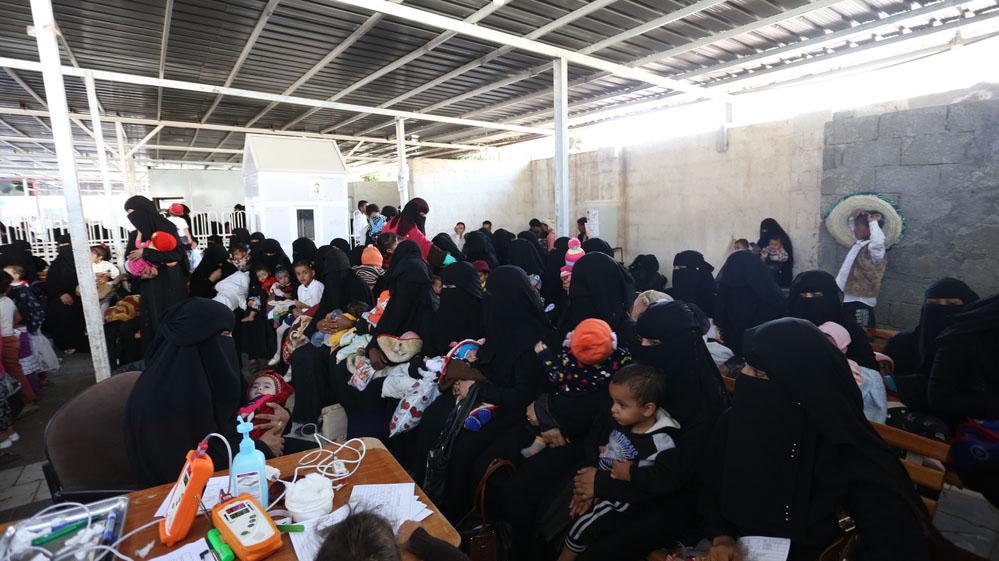
This case of Zainab and her twins represented one of the many achievements of MSF’s work in Yemen. It is wonderful to be able to provide safe care and deliveries in a low-resource setting to both mothers and babies. But still, the need for high-quality and free reproductive healthcare services in the surrounding area remains very high.
An estimated 8.1 million women and girls of childbearing age require help accessing reproductive health services across Yemen, according to the UN. The MSF hospital where I am working is the only one in the Taiz Houban area to offer free medical care for patients with high-risk and complicated pregnancies and the only one to cover referral costs to other hospitals, for example, to an intensive care unit.
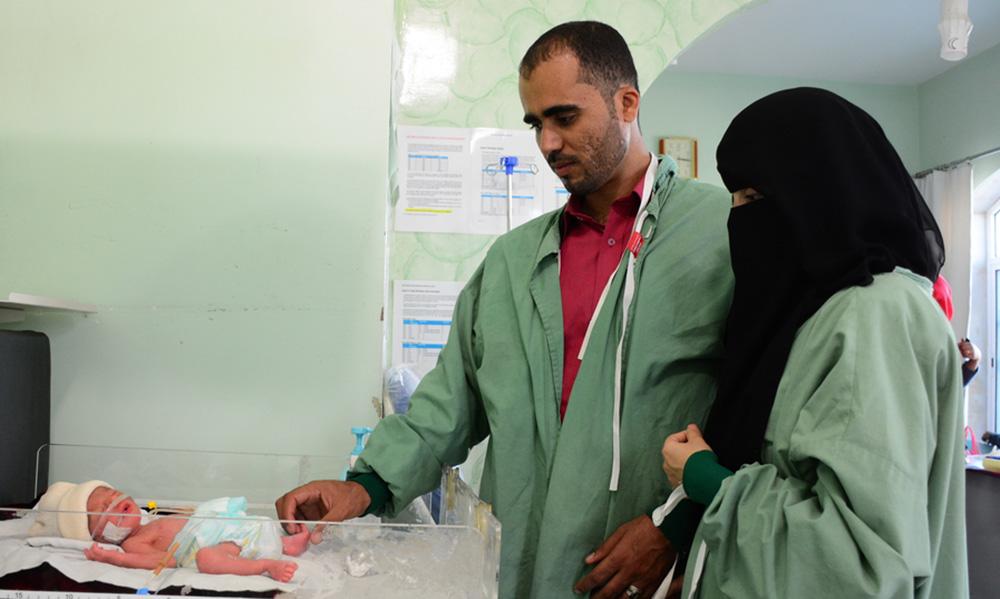
Most of our women with pre-eclampsia present with seizures and require immediate obstetric care. This is the impact of people having limited access to primary healthcare. Fortunately, our hospital provides patients with the necessary information and medical treatment.Rachel Coyle, MSF Midwife Supervisor.
Programmes run by non-governmental organisations have a major impact on the people of Taiz Houban due to the high demand for reproductive care. In a country withered by war, where the national healthcare system has nearly collapsed, I have witnessed children being treated for malnutrition, obstetric emergencies and trauma stabilisation in our hospital's emergency room. Our maternity unit sees more than 500 deliveries per month and 80-plus caesareans; we also have a family planning clinic, an urgent clinic and a high-risk clinic.
As a midwife, I have seen what happens to women when they do not receive antenatal care, which is very common in Yemen. Most women here deprioritise antenatal care as it is costly in private hospitals. We commonly see women with severe pre-eclampsia, a potentially dangerous pregnancy complication characterised by high blood pressure, which can be easily controlled and managed when diagnosed early. Most of our women with pre-eclampsia present with seizures and require immediate obstetric care. This is the impact of people having limited access to primary healthcare. Fortunately, our hospital provides patients with the necessary information and medical treatment.
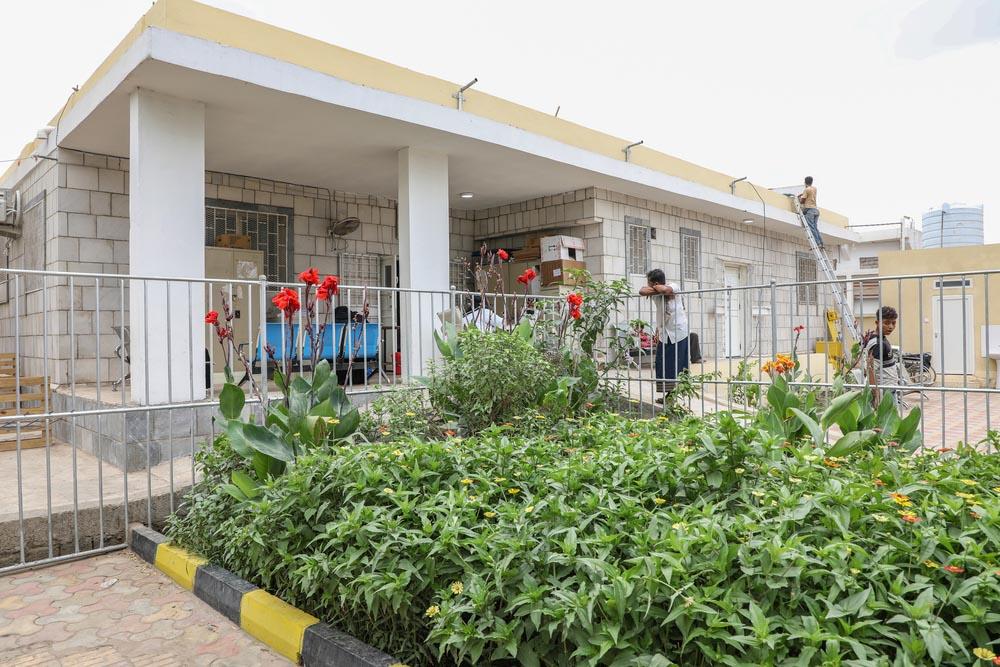
Yemen is a beautiful country with kind and welcoming people. Since the war began more than seven years ago, leading to what is often described as the world’s worst humanitarian crisis, the economic situation has declined, and health facilities have been decimated, limiting people’s access to free healthcare across the country.
Living and working here, I can see the effects of this on Yemen’s people. My Yemeni colleagues tell me stories of what life was like before the war and how Yemen as a country was thriving. This is difficult to both hear and understand.
The team in our hospital are incredibly skilled, and it is a pleasure to work alongside such resilient staff. I do not like to think what this area would be like without the hard work and efforts of our colleagues. Every other hospital in the surrounding area is private, and fees are costly, especially considering our patients often have limited financial means. Because of this, our mother and child hospital is consistently busy and truly vital for the community of Taiz Houban.
*Names have been changed to protect privacy
